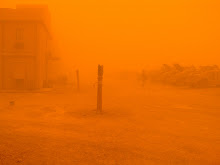By: Associated Press
The Army is investigating what appears to be a stunning number of suicides in January — a count that could surpass all combat deaths in Iraq and Afghanistan last month.
According to figures obtained by The Associated Press, there were 24 suspected suicides in January, compared to only four in January of 2008, six in January of 2007 and 10 in January of 2006.
Yearly suicides have been rising steadily since 2004 amid increasing stress on the force from long and repeated tours of duty in Iraq and Afghanistan.
The service has rarely, if ever, released a month-by-month update on suicides, but officials said Thursday that they wanted to re-emphasize "the urgency and seriousness necessary for preventive action at all levels" of the force.
An alarmed Army leadership also took the unusual step of briefing congressional leaders on the information Thursday morning.
The monthly count follows an annual report last week showing that soldiers killed themselves at the highest rate on record in 2008. The toll for all of last year — 128 confirmed and 15 pending investigation — was an increase for the fourth straight year and even surpassed the suicide rate among civilians.
General: Urgency heightened
"The trend and trajectory seen in January further heightens the seriousness and urgency that all of us must have in preventing suicides," Gen. Peter Chiarelli, Army vice chief of staff, said of the new monthly report Thursday.
The 24 suspected January suicides include seven confirmed and 17 still being investigated. Usually the vast majority of suspected suicides are eventually confirmed, and if that holds true it would mean that self-inflicted deaths surpassed the 16 combat deaths reported in all branches of the armed forces in Iraq and Afghanistan last month.
In announcing the 2008 figures last week, the Army said it would hold special training from Feb. 15 to March 15 to help troops recognize suicidal behaviors and to intervene if they see such behavior in a buddy. After that, the Army also plans a suicide prevention program for all soldiers from the top of the chain of command down.
Yearly increases in suicides have been recorded since 2004, when there were 64 all year. Officials said they found that the most common factors were soldiers suffering problems with their personal relationships, legal or financial issues and problems on the job.
No cause determined
But Army Secretary Pete Geren acknowledged last week that officials have been stumped by the spiraling cases.
"Why do the numbers keep going up? We cannot tell you," Geren said at a Pentagon press conference last week. "We can tell you that across the Army we're committed to doing everything we can to address the problem."
The relentless rise in suicides has frustrated the service, coming despite numerous attempts to stem the tide through additional suicide prevention training, the hiring of more psychiatrists and other mental health staff, and other programs both at home and at the battlefront for troops and their families.
In addition to suicide prevention programs, the Defense Department also has been working to encourage troops to seek mental health care by reducing the stigma associated with getting help. Officials believe many who need help don't get it because they fear it will hurt their careers.
In October, the Army and the National Institute of Mental Health signed an agreement to do a five-year study to identify factors affecting the mental and behavioral health of soldiers and come up with intervention strategies at intervals along the way.
Thursday, February 5, 2009
Subscribe to:
Post Comments (Atom)




No comments:
Post a Comment